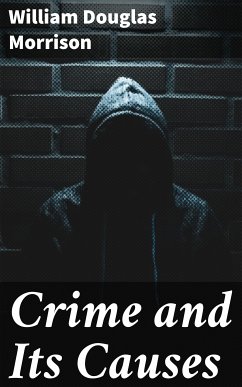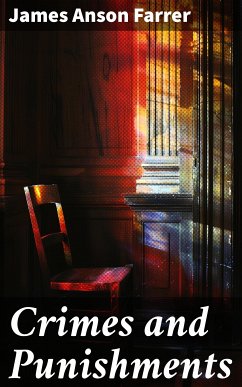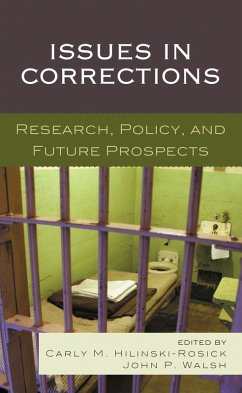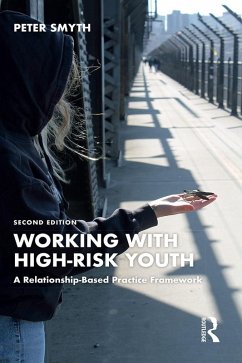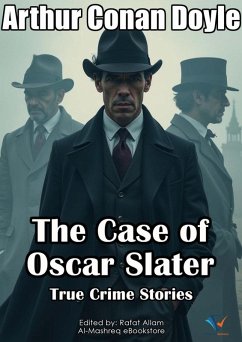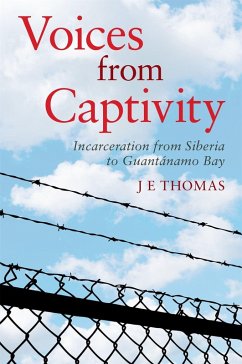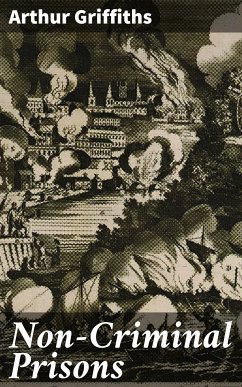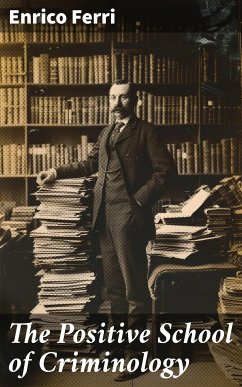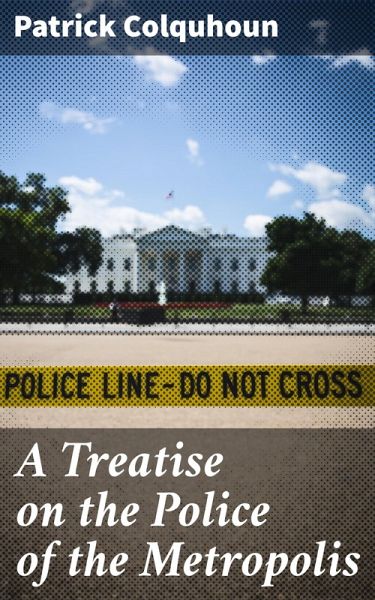
A Treatise on the Police of the Metropolis (eBook, ePUB)
Enriched edition. Innovative Solutions for Urban Safety: A Historical Analysis
Kommentar: Whitaker, Trevor / Redaktion: Good Press
Versandkostenfrei!
Sofort per Download lieferbar
0,49 €
inkl. MwSt.
Weitere Ausgaben:

PAYBACK Punkte
0 °P sammeln!
In "A Treatise on the Police of the Metropolis," Patrick Colquhoun presents a pioneering examination of law enforcement and public order in London during the late 18th century. Employing a meticulous, analytical style, Colquhoun delves into the complexities of urban crime, the inadequacies of the existing policing system, and the pressing need for reform. His work is not only an early exploration of police methodologies but also reflects the socio-political climate of an era witnessing rapid urbanization and the emergence of new social problems, making it a crucial text in the annals of crimin...
In "A Treatise on the Police of the Metropolis," Patrick Colquhoun presents a pioneering examination of law enforcement and public order in London during the late 18th century. Employing a meticulous, analytical style, Colquhoun delves into the complexities of urban crime, the inadequacies of the existing policing system, and the pressing need for reform. His work is not only an early exploration of police methodologies but also reflects the socio-political climate of an era witnessing rapid urbanization and the emergence of new social problems, making it a crucial text in the annals of criminology and social theory. Patrick Colquhoun, a Scottish merchant and social reformer, drew upon his extensive experience in public administration and commerce to illuminate the pervasive issues of crime and disorder in London. His background in trade and his position as a magistrate fueled his determination to advocate for a structured police force capable of addressing the challenges posed by a burgeoning metropolis. Colquhoun's insights were radical for his time, underscoring his role as a forerunner to modern criminological thought. This seminal work is highly recommended for scholars, social scientists, and anyone interested in the evolution of policing and societal structure. Colquhoun's treatise offers profound insights that resonate into contemporary discussions on urban crime and its governance, making it a vital addition to the libraries of both historians and policymakers. In this enriched edition, we have carefully created added value for your reading experience: - A succinct Introduction situates the work's timeless appeal and themes. - The Synopsis outlines the central plot, highlighting key developments without spoiling critical twists. - A detailed Historical Context immerses you in the era's events and influences that shaped the writing. - A thorough Analysis dissects symbols, motifs, and character arcs to unearth underlying meanings. - Reflection questions prompt you to engage personally with the work's messages, connecting them to modern life. - Hand-picked Memorable Quotes shine a spotlight on moments of literary brilliance. - Interactive footnotes clarify unusual references, historical allusions, and archaic phrases for an effortless, more informed read.
Dieser Download kann aus rechtlichen Gründen nur mit Rechnungsadresse in A, B, BG, CY, CZ, D, DK, EW, E, FIN, F, GR, H, IRL, I, LT, L, LR, M, NL, PL, P, R, S, SLO, SK ausgeliefert werden.




